Chapter: 12th Commerce : Chapter 7 : Financial Markets : Stock Exchange
Do You Know - Stock Exchange
DO YOU
KNOW
NIFTY
The word Nifty originates from 2
words, `National' and 'Fifty'. Nifty basically means the index of the 50 most actively traded
stocks from across all sectors. Nifty represents the top stocks of the NSE and
when we talk about Nifty going up, it means that all the heavyweight stocks of
NSE across all sectors are moving up. Most of the stock trading in the country
is done through NSE and BSE.
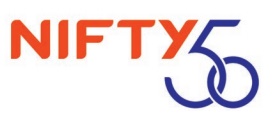
There are other stock exchanges as
well, like the Calcutta stock exchange, but they are not that popular. Nifty
consists of top 50 companies from 24 different sectors. Nifty is computed from
the performance of top stocks from different sectors. Some mutual funds use
Nifty as a benchmark. The performance of the mutual funds is assessed against
the performance of the Nifty. On NSE, futures and options are available for
trading with the Nifty as an underlying index. Nifty is calculated by using the
market capitalization weighted method according to which weights are assigned
according to the size of the company. Larger the size, larger the weightage..
SENSEX
Sensex is an index of the stocks in
BSE (Bombay Stock Exchange).
Sensex has a list of 30 stocks. BSE
decides the stocks that are to be listed on Sensex. The criteria for picking a
stock to be listed on Sensex is volume of the trade of that stock and total
volume of the stock in BSE.
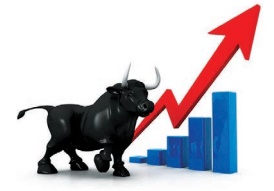
Based on the above said factors, BSE
regularly prepares a set of 30 stocks which will be together called as SENSEX.
BTW Sensex means sensitive Index Now each stock is allotted a weight-age
according to a criteria and the criteria also keeps on changing with time. So
now stocks are normally traded in BSE each day and price of stocks is
determined according to demand and supply
Stock Trading Timings in India
There are two major stock exchanges in
India- Bombay stock exchange (BSE) and National stock exchange (NSE). However,
the timing of both BSE & NSE is the same. First of all,you need to know
that the stock market in India is closed on weekends i.e. Saturday and Sunday.
It is also closed on the national holidays. The normal trading time for equity
market is between 9:15 a.m to 03:30 p.m, Monday to Friday.
The trading time for commodity (MCX)
market is between 10:00 a.m. to 11:30 a.m. Monday to Friday.
The normal trading time for
Agri-community (NCDEX) market is between 10:00 a.m. to 05:00 p.m. Monday to
Friday. In addition, there is no lunch break or tea break in the Indian stock
market timings. The timings of the Indian stock market are divided into three
sessions:
1. Normal session (also called
continuous session)
2. Pre-opening session
3. Post-closing session
Future Market
A Future market is an auction market
in which participants buy and sell commodity and futures contracts for delivery
on a specified future date. Examples of futures markets are the New York
Mercantile Exchange, the Kansas City Board of Trade, the Chicago Mercantile
Exchange, the Chicago Board of Options Exchange and the Minneapolis Grain
Exchange. Originally, trading was carried on through open yelling and hand
signals in a trading pit, though in the 21st century, like most other markets,
futures exchanges are mostly electronic.
Options Market
An 'Option' is a type of security that
can be bought or sold at a specified price within a specified period of time,
in exchange for a non- refundable upfront deposit. An options contract offers
the buyer the right to buy, not the obligation to buy at the specified price or
date. Options are a type of derivative product. The right to sell a security is
called a ‘Put Option', while the right to buy is called the ‘Call Option‘.
They can be used as:
Leverage: Options help you profit from changes in share prices without
putting down the full price of the share. You get control over the shares without
buying them outright.
Hedging: They can also be used to protect yourself from fluctuations in the
price of a share and letting you buy or sell the shares at a pre-determined
price for a specified period of time
Dalal Street
Dalal Street is an area in ![]() downtown
Mumbai, India, that houses the Bombay Stock Exchange (BSE) – the largest stock
exchange in India – and other reputable financial institutions. It received the
name Dalal Street after the Bombay Stock Exchange moved to the area in 1874 and
became the first stock exchange recognized by the Indian Government.
downtown
Mumbai, India, that houses the Bombay Stock Exchange (BSE) – the largest stock
exchange in India – and other reputable financial institutions. It received the
name Dalal Street after the Bombay Stock Exchange moved to the area in 1874 and
became the first stock exchange recognized by the Indian Government.
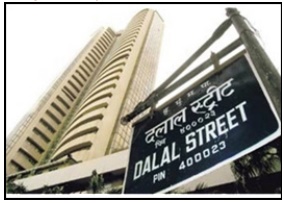
The literal translation of Dalal in
Marathi is a broker or intermediary. Today, Dalal Street is a metonym for the
entire Indian financial sector much like Wall Street in the United States.
Lombard Street
Lombard Street,
London, is a street notable for its connections with the City of London's
merchant, banking and insurance industries, stretching back to medieval times.
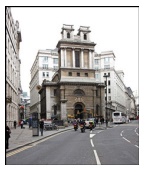
From Bank junction, where nine streets
converge by the Bank of England, Lombard Street runs southeast for a short
distance before bearing left into a more easterly direction, and terminates at
a junction with Grace church Street and Fenchurch Street. Its overall length is
260 metresIt has often been compared with Wall Street in New York City
Wall Street
Wall Street is a street in lower Manhattan
that is the original home of the New York Stock Exchange and the historic
headquarters of the largest U.S. brokerages and investment banks. The term Wall
Street is also used as acollective name for the financial and investment c o m
m u n i t y , which includes stock exchanges and large banks, brokerages,
securities and underwriting firms, and big businesses. Today, brokerages are
geographically diverse, allowing investors free access to the same information
available to Wall Street's tycoons.
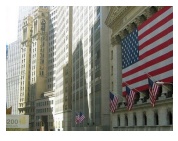
Related Topics